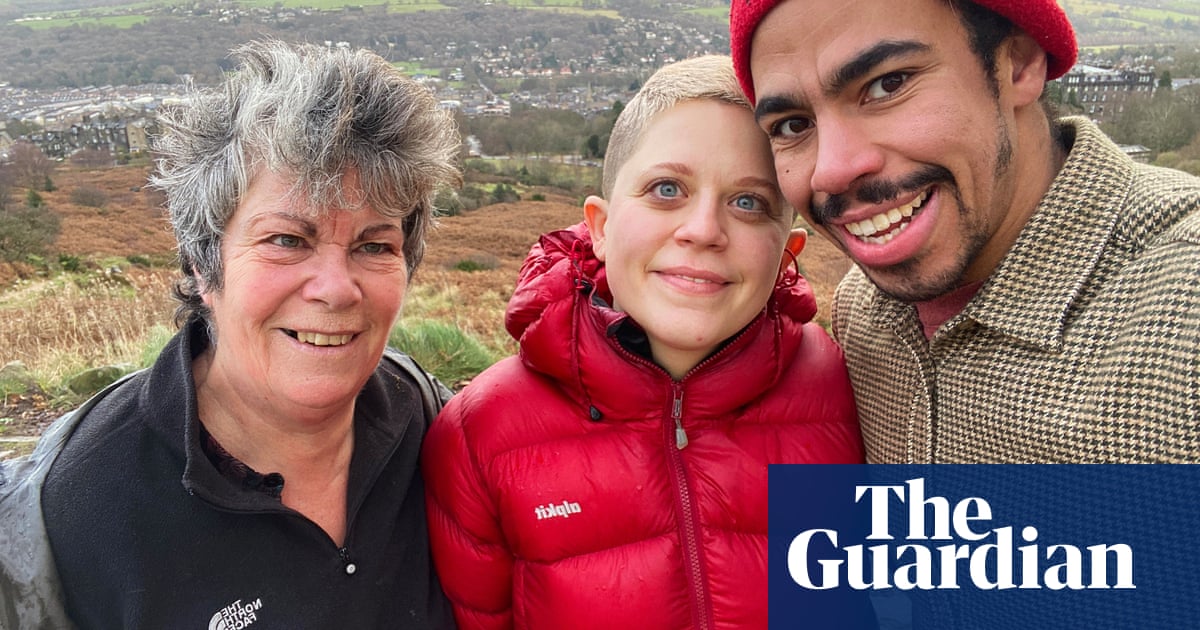The mother of a man charged in relation to a protest at a site belonging to an Israeli arms manufacturer has said it is outrageous that he faces 21 months in jail before his case goes to trial.
William Plastow, 34, who lives in Manchester, is one of the “Filton 18”, accused of taking part in a Palestine Action protest against an Elbit Systems factory near Bristol in August last year. He denies charges of criminal damage, violent disorder and aggravated burglary.
Plastow, a script editor, and five more of the 18, who are all being held in prison, have been given a trial date of April next year.
Custody time limits stipulate that defendants should not spend more than six months in jail awaiting trial. Under new sentencing rules for England and Wales, which allow the release of convicted criminals after serving a third of their sentences, Plastow will have served the equivalent of a sentence of more than five years before going to trial.
His mother, Jane Plastow, 66, an academic at the University of Leeds, believes it is the longest anyone will have been held in jail awaiting trial on protest-related charges and fears for his mental health. In a prison diary published in Inside Time, her son wrote about having suicidal thoughts.
His mother said: “It’s outrageous, it’s terrible. Will is a kind of glass-half-empty guy, so he tends towards [believing in] the worst possible outcome. Every day, which has become a kind of ritual, I have to say: ‘Yes, you are going to get out of there, this is not the end of your life. They are not going to be able to keep you in for years and years and years.’ Because you just obviously feel so helpless and hopeless locked up in that place.”
She said she had offered a surety of £50,000, using money from an inheritance, for his bail application, said he could live with her and that all internet access would be removed from the house. He also would have been tagged, had his passport and smartphone removed and had to report regularly to the police, but he was still denied bail.
Jane said the judge indicated her son posed a risk of breaking the law again. “What you’re being required to prove is a negative – well, you can never prove the negative, can you?” she said. “You can’t prove that you’re not going to do anything.”
Another of the Filton 18, Kamran Ahmed, was granted bail but the decision was overturned on appeal.
Will Plastow’s partner of 10 years, Valentina Tschismarov, a script editor, said: “I think the worst that I have personally seen him was when his bail application was denied, which obviously was really disheartening for all of us. Shortly afterwards myself and his mum went to visit him together and I was very worried at that point because he was really shaken, just out of it.
“Even on the phone in the weeks after that, he just sounded very distant and kind of broken down. It seems incredibly disproportionate. I always imagined that there were these protections in place and you couldn’t just have somebody jailed without a conviction for these amounts of time. I think people are not really aware.”
The longest that any Just Stop Oil activists have spent in jail awaiting trial was the nearly 10 months – still over the custody time limit – spent on remand by two of the Heathrow 10, who had planned a peaceful demonstration at the airport last July.
The Filton 18 were initially arrested under the Terrorism Act, which meant they could be held for 14 days without charge. None have been charged with terrorism offences but the Crown Prosecution Service has said there was a “terrorism connection”.
The Ministry of Justice referred the Guardian to the Judicial Office, which said it could not comment on individual cases.
